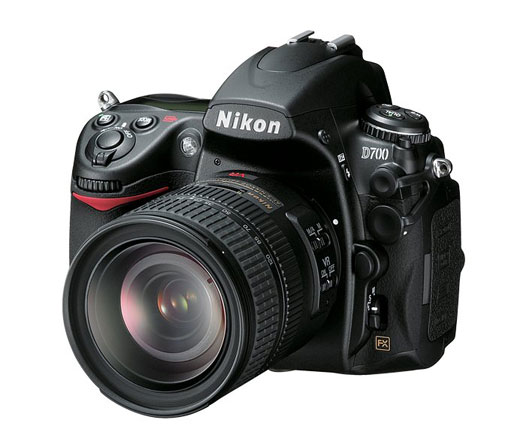July 06, 2008
Nikon D700 marks the end of DX sensors
I’m very glad to see the arrival of Nikon’s second FX (full frame) digital SLR: Nikon D700. The new camera is essentially a D300 with a full frame sensor built in.

Nikon D700
DX vs FX format
In my humble opinion, the DX format has been a monumental waste of our precious terrestrial resources. Consider all those millions of DX lenses that have been produced over the last couple of years. At some stage they will no longer be used, while early AF Nikkors dating back to the 80s & 90s will still keep powering our FX cameras.
While this won’t happen overnight the FX format is likely to be taken up by many photographers when they next upgrade. Photographers will have to take this switch to FX format into consideration when deciding on whether to buy DX or FX lenses: while DX lenses are (still) cheaper, they can’t take advantage of the quality that can be achieved by FX sensors.
Thankfully Nikon allows their users to switch between DX and FX formats on the same camera, so the switch from DX to FX can be made gradually.
It will be interesting to see what Canon’s 5D Mk II will bring, and how it will be priced. Perhaps Sony, Olympus or Pentax will introduce a full frame dSLR before too long and things will really heat up…
SB-900 Speedlight
Nikon has also announced their newest addition to their speedlight line up. It has some interesting specs: faster recharge cycles compared to the SB-800, and wider range of the zoom head. Its specs are still very close to that of the SB-600/SB-800 though. I doubt whether many photographers will use the need to upgrade their old speedlights.
Still no Nikon RAW compact camera
I am still waiting for a Nikon compact that supports RAW files. Nikon used to build RAW support into some of their compacts—but that was some time ago.
Instead Nikon has jumped on the bandwagon and helped saturate the market with the same type of cameras as other manufacturers have produced—it’s clone central out there. Perhaps they have learned from Canon’s recent success with the Powershot G9 (heck, I bought one).
And while we are on the topic of enlarged sensors, why not build a compact with a DX sized sensor like the Sigma DP1? A DX sensor is almost twice as large as they normally are on a compact, and will give serious photographers digital rangefinder cameras with exceptional capabilities.
 Comments(4)
Comments(4)
The emergence of more affordable FX bodies is great news but don’t think that this will spell the end of the DX format. There are pros and cons to both formats. Suggest reading Bjørn Rørslett’s article “D3 against the D300: FX vs DX format” http://www.naturfotograf.com/D3/D3_rev06.html for an excellent analysis of the two formats. For me personally the 18-200 VR lens is reason enough to hang on to a D300 body.
That’s a good article Doug—thanks for that. It’s a funny situation: while it is certainly true that DX has its merits, I consider running both DX and FX glass production lines to be unsustainable in the long run. Of course the more DX lenses consumers will keep buying, the longer DX will stick around. And yes, I will hang on to my D300 for some time yet as well.
I’m interested on getting the new Nikon d90, not only because of it’s features but for it’s price. I’m not profesional photographer. I’m aware of dx/Fx formats (If i could I’d get a d700, but I’m afraid I can’t.)
So the question is… What do you think about geting a dx body now? Should I wait with my old N90s till Fx bodys are more afordable?
Thank you
Hi Santiago, I’d definitely wouldn’t wait with purchasing a digital camera if you’re still using film. The D90 is a fabulous camera and won’t disappoint. Personally, I’m not really buying into the DX lens system though, since I am anticipating moving to FX at some stage in the future. Until that time I’ll still be happily snapping away with my D300 and some cheaper DX lenses. I only miss the “FX effect” when I need to use wide angle lenses—that’s where DX is hurting the most. Hope this helps.